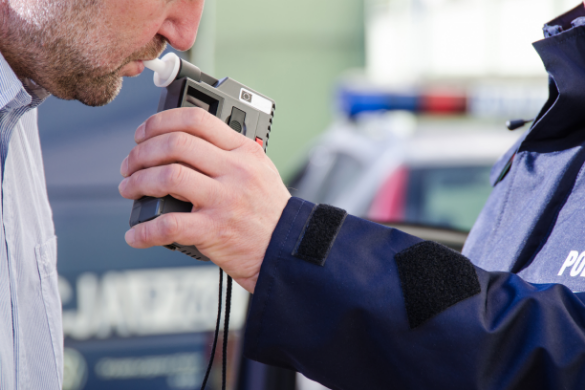Driving under the influence (DUI) is a serious crime in Tennessee and it carries significant penalties. If you are pulled over and suspected of driving while intoxicated, you might be asked to take a sobriety test. These tests can be used as evidence in court, and it is important to understand the legal implications of these tests.
Field Sobriety Tests
Field sobriety tests are physical tests that are administered by the police officer at the scene of the stop. These tests are designed to measure an individual’s coordination and balance. When taking a field sobriety test, it is important to understand that the officer is looking for signs of intoxication such as swaying, poor balance, and an inability to follow instructions.
There are three types of field sobriety tests:
- The walk and turn test: Requires the suspect to walk a straight line, heel to toe, for nine steps, turn, and walk back.
- The one-leg stand test: Requires the suspect to stand on one leg for 30 seconds.
- The horizontal gaze nystagmus test: Requires the suspect to follow a light or object with their eyes and the officer is looking for jerking or twitching of the eyes.
The results of these tests can be used as evidence in court to show that an individual was driving under the influence. If the results of the test show that the individual was impaired, the individual might be arrested and charged with a DUI.
Can I refuse to take a field sobriety test in Tennessee?
In Tennessee, you have the right to refuse an officer’s request to perform a field sobriety test. You are not legally required to comply and there are no penalties for refusing. However, the officer may still legally arrest you if he or she believes the “totality of the circumstances” indicates you were driving while impaired.
Breathalyzer Tests
Breathalyzer tests are used to measure an individual’s blood alcohol content (BAC). In Tennessee, a BAC of .08% or higher is considered to be driving under the influence (DUI). If a breathalyzer test reveals a BAC of 0.08% or higher, the individual may be arrested and charged with a DUI. The results of this test can be used as evidence in court and can result in serious consequences.
The breathalyzer test is administered using a portable device that measures the amount of alcohol in the breath. The device is held up to the individual’s mouth and the individual is required to blow into the device.
Can I Refuse the Breathalyzer Test in Tennessee?
Yes, you may refuse to comply with the officer’s breathalyzer test if you are pulled over on suspicion of drinking and driving. You are not legally required to take this test. However, the officer may still legally arrest you if there is probably cause.
Blood and Urine Tests
Blood and urine tests are used to measure an individual’s BAC levels. The results of these tests can be used as evidence in court to show that an individual was driving under the influence. An individual may be charged with a DUI if their BAC is above the legal limit or if drugs are found in their system. It is important to understand that refusal to take a urine or blood test is illegal.
Can I Refuse a Blood or Urine Test in Tennessee?
In Tennessee, there is a “no refusal” policy that requires individuals who are pulled over to submit to a blood or urine test. Refusing to take these tests can result in a license suspension and other serious consequences. Unlike field sobriety and breathalyzer tests, you must legally comply with blood and urine tests (“chemical” tests) if you have been arrested.
Contact Herbert & Lux for Strong Representation
If you have been arrested or charged with a DUI, it is important to contact a qualified criminal defense attorney who can help you understand the legal implications of the tests and the potential penalties you may face. Contact Herbert & Lux today to learn more about how we can help you fight your DUI charges. Call now for a free consultation: (615) 878-5537.



